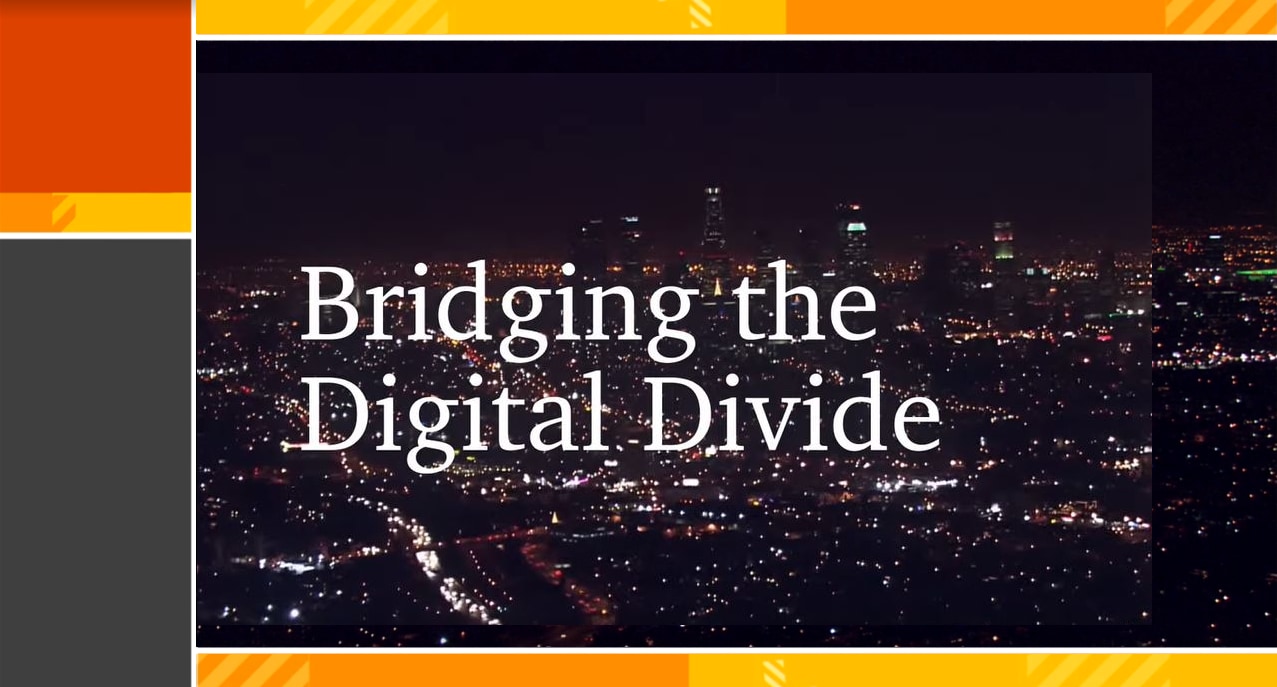{{item.title}}
{{item.text}}

{{item.text}}
Everyone should be able to live, learn, work and participate in the digital world.
The accelerating pace at which technology is developing has impacted businesses and our daily lives. One area that continues to experience rapid change? Jobs. We see new roles being created, while others fade out. The gap between the skills people have today and the ones needed for tomorrow is growing at an unmatched rate, and it will continue to widen if nothing is done.
We believe the need to upskill is a critical issue that deserves considerable attention. That’s why the PwC global network is investing US$3bn that will go towards upskilling over the next four years.
At PwC Malaysia, our people are our greatest assets, and we’ve invested in training to ensure they are prepared for the future of work. But our commitment to upskilling doesn’t stop there. It extends to helping other organisations identify and address the challenges within their workforce, and reaching underprivileged communities who may not have access to upskilling opportunities.
That’s how we hope to bridge the digital divide.
Source: PwC’s Hopes and Fears Survey 2021: Malaysia report

Upskilling is not just about digital skills. While there is an increase in demand for skills like data analytics and coding, for example, soft skills such as curiosity, innovation and adaptability are equally important. Building a culture that will support this environment will be foundational to an organisation’s upskilling journey.
To upskill, we believe organisations should place strategic focus on:
Assess the current environment and challenges. Identify the size and nature of an organisation’s skills gaps and mismatches, where to start and what to prioritise.
Define future workforce and understand the impact of automation
Assess current workforce capabilities
Understand the organisational culture
Identify skills gaps, mismatches and role adjacencies
Validate the case for change
Build strategic plans to deal with the skills gaps which have the most impact on delivering business value.
Rapidly review and refresh upskilling strategy
Make inclusion a priority
Improve effectiveness of learning organisation & tech
Test strategic alternatives and scale best-performing programmes
Use culture as the bedrock of an organisation’s upskilling efforts.
Create a cultural shift and the right behaviours
Inspire citizen-led innovation
Nurture physical vitality and mental wellbeing
Create and deploy programmes which harness the organisation's culture and use key behavioural economics principles to deliver the right learning experience and rapid results.
Create buy-in and align rewards and incentives
Free up time for learning
Design for an engaging learning experience
Build digital understanding
Focus on targeted personal transformation journeys
Deliver training
Measure the return on investment from upskilling programmes.
Measure return on learning investment
Track employee engagement
Benchmark the L&D function
Want to know more about upskilling? Check out our publications below.
{{item.text}}

{{item.text}}
The opportunity to upskill shouldn’t be limited to a select few, but open to all. This is especially true as the world continues to respond to the impact of COVID-19. To narrow the digital divide among our youth, we’ll be working towards ensuring students aren’t left out of the equation. Through our 'Komuniti Digital' programmes, we hope to address the barriers that are preventing students from acquiring valuable digital skills and knowledge - Skills and knowledge that they can apply to their studies, personal lives, and eventually the workplace.
Scroll down to read about our 3 initiatives so far.
Before COVID-19, we recognised that cultivating digital skills and a digital mindset among our youth was much needed to help them meet the demands of future employers. The pandemic has since placed greater emphasis on this urgency, as evidenced by the shift from physical classrooms to digital ones in recent months. To equip students for the new world, we knew we had to first reach those with the ability to make a direct impact on them: teachers.
In line with our belief that everybody from all corners of the community should have the opportunity to upskill, we’ve collaborated with Arus Academy to help teachers across Malaysia reimagine education. Our pilot programme, launched on 29 June, aims to empower teachers in delivering effective lessons remotely through the strategic use of various digital platforms.
This will not only nurture skills like resilience, flexibility, creativity and critical thinking, but also ensure the creation of exciting and interactive lesson plans that will succeed in engaging students.
At present, we have 54 teachers signed on, all of whom will undergo a series of virtual workshops on how to adapt their approach to teaching. Following the workshops, they will then be required to build teaching and learning materials based on the academic needs of their students. A total of 6 subjects is covered within the programme: Matematik, Sains, Asas Sains Komputer, Reka Bentuk & Teknologi, Sejarah, and Geografi for Form 1 to Form 3.
The 4-month programme has been designed by Arus Academy, with PwC Malaysia volunteers participating as facilitators in knowledge sharing sessions. It is supported by the education state departments of Kedah, Perlis & Sarawak.
Digital studies are being taught in universities. But do students feel these lessons are sufficient to help them hit the ground running upon joining the workforce? From a survey we ran with a group of students, the answer appears to be “not quite.” A common refrain is that the skills taught are not tailored to the needs and requirements of today’s employers, meaning students are unable to apply their learnings to real-life situations in the workplace.
As an employer of graduates, we know how hard students work to differentiate themselves in a competitive job market. And with digital skills being in high demand in answer to the rapid rise of technology, we want to help prepare university students for this reality.
Through our ‘Kampus Digital’ initiative, we’ll be reaching out to universities in Malaysia and running a programme that’s been tailored to impart key lessons on the digital skills and knowledge required in the realms of accounting and business. For each university, spots will be given to students who are in their final year of either an Accounting, Finance or Business course.
There are two phases to the initiative, with each separate programme running for 2 and 5 months respectively. We’ll run our pilot programme with one local university first, teaching students about Microsoft Excel and its many useful formulas to note, together with Digital Fitness Assessments and elective courses run by PwC’s Academy (e.g. a course on the Malaysian Financial Reporting Standards [MFRS]).
As we continue to build up our library of learning materials over the next few months, we will look into incorporating additional modules into phase 2*, for instance, how to create impactful presentation decks and lessons on Digital Citizenship.
Kampus Digital lessons will be facilitated by volunteers from PwC Malaysia.
Students will receive a certificate upon completing the Kampus Digital programme. And those who fulfill certain requirements** will also be given an internship opportunity with PwC Malaysia.
*For phase 2, students from our targeted universities can register their interest to participate in the programme by completing a pre-assessment. Due to limited spots, the final selection will be made based on the results of the assessment. More updates to follow in the coming months.
**We assess all students against PwC Malaysia’s standard criteria for internship positions.
Last year, we worked with Arus Academy to upskill 46 teachers, wanting to equip them with the relevant digital skills and knowledge to prepare them for our present new world. It was an eye-opening experience that demonstrated to us the passion and dedication Malaysian teachers have for education.Yet, it also showed us that there’s much progress to be made in ensuring more educators have access to such opportunities for the benefit of our youth.
As Malaysia continues to battle the pandemic, putting our educators at the forefront of upskilling and reskilling is a need we cannot ignore. But with thousands of teachers in the country, we understand that effecting change on a broader scale will not be easy. Not unless we first empower System Leaders. That’s because these leaders play a critical role in implementing policies in schools, which in turn can impact the quality of teaching and student outcomes.
In view of this, PwC Malaysia will be sponsoring Edvolution’s Applied Leadership Programme (ALP), an 8-month consultation and leadership training programme that aims to help System Leaders reform education and accelerate improvement in schools. By participating in ALP, these System Leaders will be provided with opportunities to develop their skills in several crucial areas which include but are not limited to (i) problem solving; (ii) coaching and mentoring; and (iii) using data to extract insights for decision-making.
These opportunities will come in the form of live workshops, sharing sessions and learning circles facilitated by Edvolution, with volunteers from PwC Malaysia lending support. As a sponsor, we’ll also be helping Edvolution with the programme’s quality assurance.
70 officers from the Ministry of Education are slated to join the programme. These officers are from 17 districts across Perlis, Kedah, Johor, Melaka, Selangor, Pahang, Sabah, Sarawak, and Labuan.



Taariq Murad
Tax Partner; Public Sector Leader; and Inclusion & Diversity Leader, PwC Malaysia
Tel: +60 (3) 2173 1580


